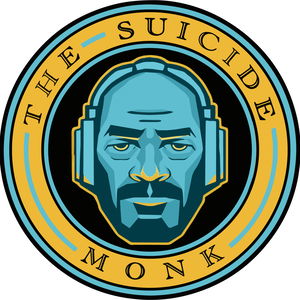The conversation explores the topics of suicide prevention, emotional wellbeing, and the psychology behind suicidal ideation. Adam Dell shares his background as a psychologist and his work at the University of Notre Dame, focusing on supporting emotional wellbeing in athletes. The discussion delves into Joyner's interpersonal theory of suicide and the factors influencing suicide capability. The Suicide Monk opens up about his personal experience and the importance of self-care in navigating mental health. In this part of the conversation, the principal themes revolve around self-compassion, acceptance, and finding meaning in pain and brokenness. The chapters cover topics such as the importance of self-care and well-being, the role of nutrition in emotional well-being, the power of acceptance-oriented therapy, and the significance of embracing reality. The conversation also delves into the concept of resting in faith and letting go of control, as well as the impact of childhood trauma on self-identity. The chapters highlight the importance of leaning into pain and avoiding avoidance, and the transformative power of finding purpose in one's pain. This part of the conversation explores the importance of pain and change, the complexity of human experience, and the significance of moving forward from brokenness. It also delves into the power of simple acts of charity, the impact of genuine connection, and the importance of deep relationships. The conversation highlights the link between joy and suffering, the power of impacting others' lives, and the significance of small acts of charity. It also discusses the importance of disobeying the mind and overcoming addictions, accepting and understanding oneself, and the impact of sedation methods. The conversation concludes with insights on the detrimental effects of modern culture, the relationship between sleep and mental health, and the importance of measurable pillars in life. This conversation explores the impact of depression and anxiety, the myopic perspective of those affected, and the importance of self-reflection. It delves into the role of sleep deprivation and intoxication, taking responsibility for self-sabotage, and navigating agency and volitionality. The conversation also highlights the importance of building a supportive community and the role of those affected by suicide. It emphasizes the power of human connection, seeing ourselves in context, and finding purpose and meaning. The discussion touches on the significance of gratitude, navigating rejection and loss, and carrying brokenness into restoration. It explores the concept of pivoting towards freshwater experiences, being the donkey of vulnerability and truth, and recognizing what we care about. The conversation concludes with reflections on the preciousness of life and the power of connection and comradeship.
Crisis Hotline:
https://www.nami.org/Your-Journey/Individuals-with-Mental-Illness/Finding-a-Mental-Health-Professional
https://988lifeline.org/?utm_source=google&utm_medium=web&utm_campaign=onebox
https://nationaltoolkit.csw.fsu.edu/resource/national-suicide-prevention-lifeline-1-800-273-talk-8255/
National Suicide Prevention Lifeline: Available nationwide at (800) 273-TALK (8255)
NAMI HelpLine: Text "HelpLine" to 62640 or call (800) 950-NAMI (6264)
988 Suicide & Crisis Lifeline: Available for calling, texting, or chatting
SAMHSA's National Helpline: Available 24/7 in English and Spanish
National Sexual Assault Hotline (800) 656-4673

